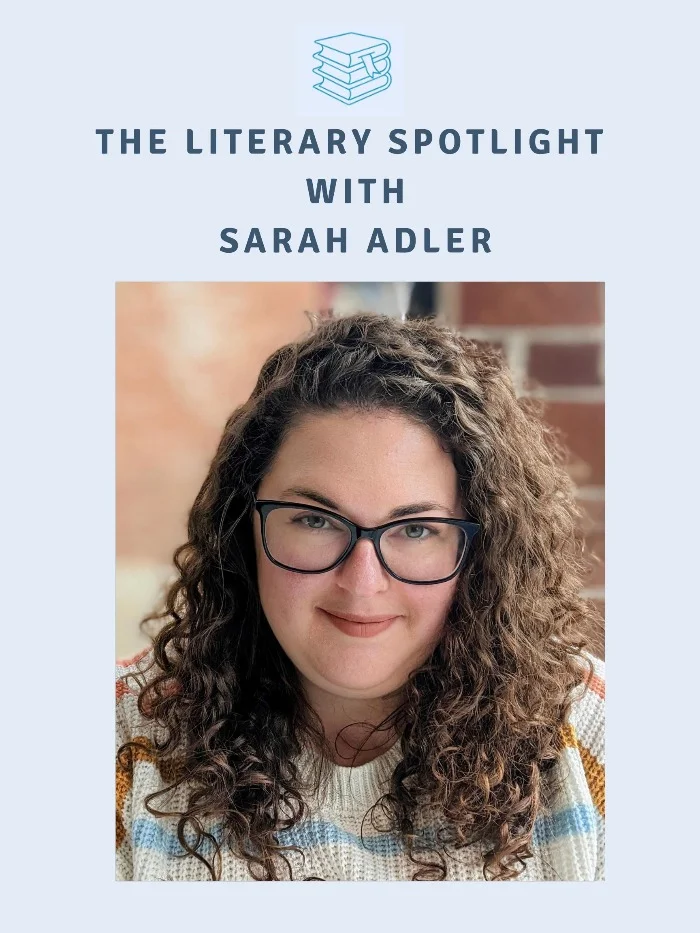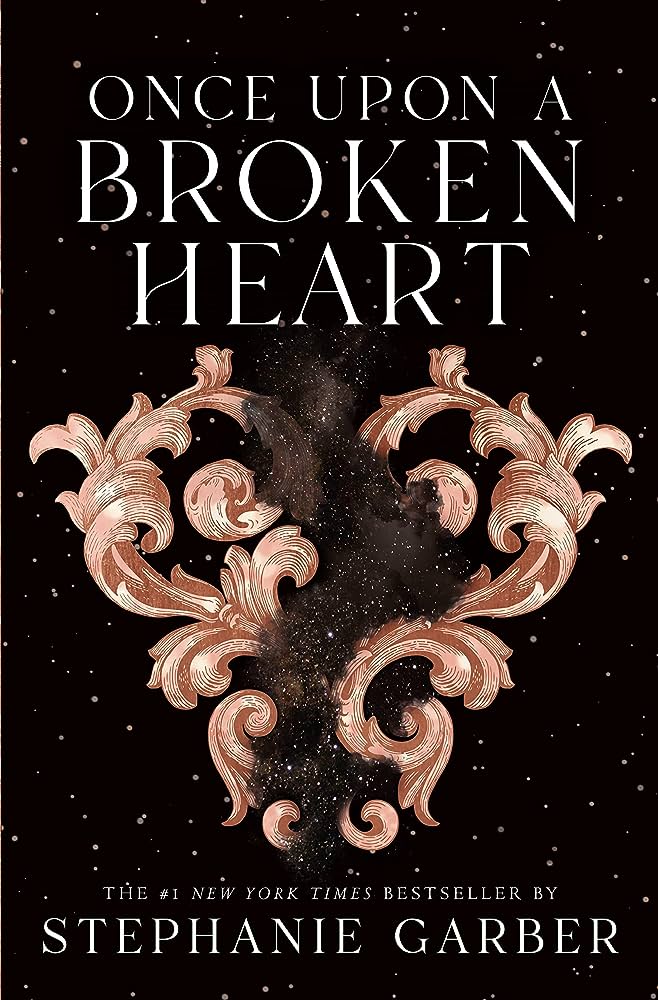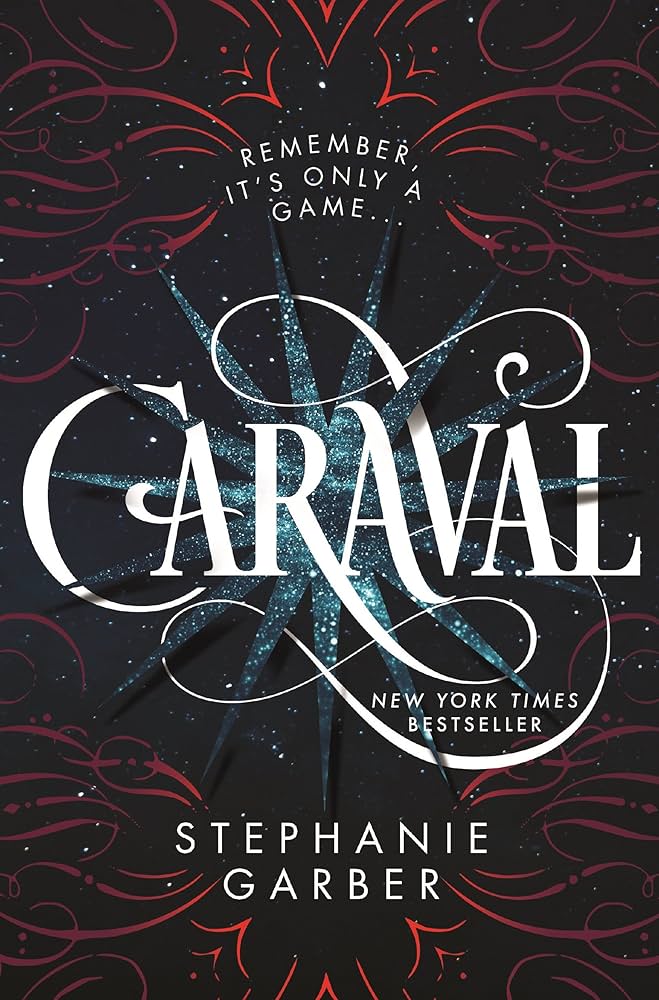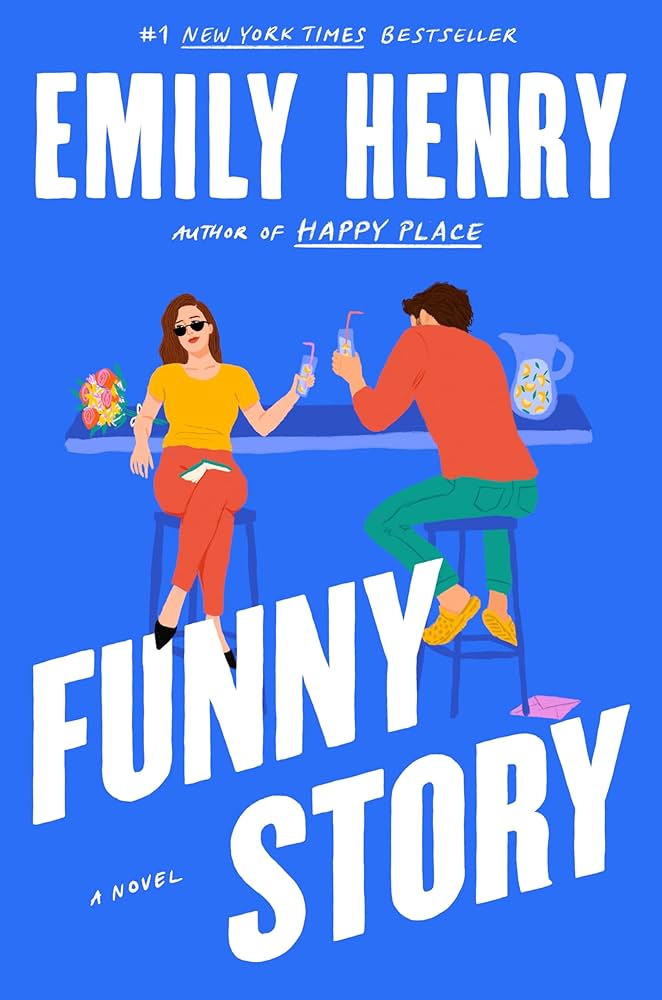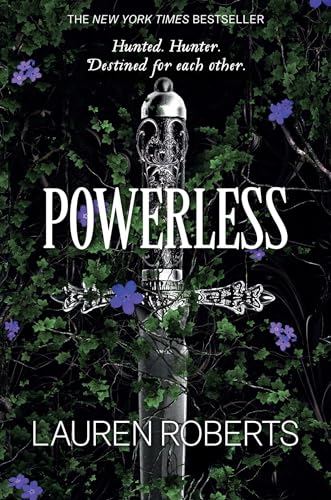It is with immense gratitude and a deep sense of privilege that I introduce you to the extraordinary author, Sarah Adler. Today, we have the unique opportunity to engage in an exclusive interview with this remarkable storyteller whose literary works have captured the hearts of readers far and wide.
Meet Sarah Adler, the witty and enchanting rom-com author whose stories have the power to make your heart skip a beat and leave you smiling long after you’ve turned the last page. With a pen as her magic wand and a heart brimming with humor and love, Sarah has charmed readers around the world with her delightful tales of romance and laughter. Whether you’re seeking a feel-good escape or a dose of whimsy in your day, Sarah’s imaginative storytelling and lovable characters promise to whisk you away on an unforgettable journey of love, laughter, and happily-ever-afters. Sarah Adler is an accomplished rom-com author, whose debut novel, “Mrs. Nash’s Ashes,” introduced readers to her enchanting storytelling style.With “Mrs. Nash’s Ashes,” Sarah Adler marked her entrance into the world of rom-coms, captivating readers with her humor, heart, and knack for crafting unforgettable characters. Her charming stories whisk readers away on delightful adventures filled with love, laughter, and all the delightful quirks that make life so enchanting. As Sarah continues to pen heartwarming romances, her readers eagerly anticipate each new tale, knowing they will be treated to a delightful escape into the world of love and laughter. With her passion for storytelling, academic background in history, and a dash of mischievous feline companionship, Sarah Adler’s journey as an author is one that promises to enchant readers for years to come.
Introduction:
C.A: Could you please introduce yourself and tell us a bit about your writing background? What inspired you to become a writer, and how did your writing journey begin?
Sarah: Hello! My name is Sarah Adler, and I write adult romantic comedies. My first book, Mrs. Nash’s Ashes, was published by Berkley in May. (Content notes are available on my website; please check those out to determine if it’s the right read for you!) As a kid, reading and writing were always some of my favorite things to do for fun. But as I got older and started focusing more on academics I stopped doing both as much unless it was a school assignment. It wasn’t until I was in my late twenties when I graduated with my master’s degree, gave birth to my daughter, and quit my full-time job all in quick succession, that I rediscovered my love of fiction. I told a friend of mine that I was considering trying to write a novel, but wasn’t sure if I was prepared enough. She said just sit down, start, and see what happens. Three years, two hundred or so agent rejections, and many hundreds of thousands of words later, I wound up with a two-book deal with Penguin Random House!
Creative Process:
C.A: Could you share a glimpse into your creative process? How do you approach developing ideas and turning them into stories? Do you have any specific rituals or habits that help you get into the writing zone?
Sarah: For me, one of the most challenging parts of the idea stage is that there are a lot of very fun premises but that doesn’t mean I have the ability to turn them into a plot. Premises are the “what if…?” question, but that alone doesn’t make a book that’s interesting to read. You have to be able to follow through on it. So a lot of my brainstorming is coming up with a fun idea but then also checking with myself to see if I can actually make it work so I don’t get twenty thousand words in and realize suddenly that there’s no story there. One of the things I try to do a lot while coming up with a new idea is catch up on TV or revisit old favorite shows and movies. I don’t watch a lot of television anymore, but
something about switching to a visual medium allows my brain to rest while still feeding it new inspiration. Like for Mrs. Nash’s Ashes, readers will probably be unsurprised to learn that I was rewatching the first season of New Girl when I was figuring out the dynamic between Millie and Hollis.
Writing Influences:
C.A: Who are some of your favorite authors or literary influences, and how have they shaped your own writing style? Are there any books or works that have had a profound impact on your writing career?
Sarah: My greatest influence overall is probably Jeifer Crusie, whose 2000 romcom Welcome to Temptation is my favorite romance book of all time. I’m also always enjoying and learning things from Sarah Hogle and Kerry Winfrey’s wonderful, hilarious work. Outside of the romance genre, Hilary Leichter’s Temporary, Stella Gibbons’s Cold Comfort Farm, Amor Towles’s A Gentleman in Moscow, Jessica Anthony’s Enter the Aardvark, and Lily King’s Euphoria have been really influential in the way I approach structure, voice, and humor.
Overcoming Challenges:
C.A: What challenges have you faced as a writer, and how did you overcome them? How do you handle writer’s block or periods of self-doubt?
Sarah: When I first started writing seriously, I was a stay-at-home mom to a baby who had some minor health issues. Finding the time to work on my manuscript was a big challenge, and I’m so grateful to have such a supportive partner who made sure I got the time and space I needed to pursue it, even when we thought it would simply be a hobby and not my next career. The pandemic hit a week or so after I started working on my second manuscript, and that was challenging for everyone in the world, of course. At the time, I was living in a very small one-bedroom apartment with my husband and toddler.
There was a lot of balancing and space-sharing and writing in parking lots. It was definitely stressful! But I also feel like having something to work on really helped me get through that time.
As far as writer’s block, I get it with every project for at least a week or two, usually right around the middle of the book. I’ve come to accept that it will clear itself with time and rest, and that fighting it usually makes it a lot worse. Working with it instead of against it has been a real game changer for my process and also my mental health.
Character Development:
C.A: How do you approach developing compelling and relatable characters in your stories? Are there any strategies or exercises you use to ensure your characters feel authentic and three-dimensional?
Sarah: Something that I’ve learned to do is to let my characters tell me who they are and then roll with it. The more I do that, the more successful I am. Usually that involves paying close attention to how they sound in my head when I first think about them, and the sorts of things they want to say. Beyond that, I try to know what my characters are like off the page to ensure they feel like real people. What would be their go-to coffee order? What kinds of things do they do on the weekends? When I know them well enough to answer questions like that, I can throw them into any situation and they’ll do what they’re supposed to without me usually having to think too much about it. I also am a big eavesdropper (not intentionally, it’s just how my brain works!) and I pay a lot of attention to how people talk when I’m in public places. I think that helps my dialogue feel authentic, which also makes the characters feel more real.
Creative Inspiration:
C.A: Where do you find inspiration for your stories? Are there any specific themes or topics you enjoy exploring in your writing?
Sarah: I find inspiration all over the place, but mostly they’re things grounded in some element I find humorous or fascinating. Like with Mrs. Nash’s Ashes, it came from me being unable to stop thinking about a radio interview with a musician who took his mother’s ashes on tour with him. My second book started out as a joke title I came up with that I worked backward from. And then I like to combine nwhatever premise I come up with with other things I love or want to have an excuse to research. In my work, I seem to gravitate a lot toward themes of death and grief, which is interesting because I don’t
really think much about those things in my day-to-day life. Something I do intentionally try to include in all of my books is the idea that real love means wanting someone for who they actually are, not who you want them to be or who they might be pretending to be.
Personal Reflection:
C.A: Is there a particular book or project you are most proud of? Could you share the story behind it?What is the most rewarding aspect of being a writer for you?
Sarah: I’m really proud of any book I finish because writing is hard! But so far I think I’m most proud of Mrs. Nash’s Ashes because it was the result of a lot of growth and determination, and I wrote it while dealing with a lot of stress and anxiety about the world. Something I didn’t really think about or expect going into this career is that people would read my work and then reach out to say very kind things about how it affected them. Hearing that my words made someone laugh or helped them feel better during a challenging time is definitely the most rewarding part of being a writer for me.
Editing and Revision:
C.A: How important do you think the editing and revision process is for a writer? Could you share your approach to editing your own work? Do you have any suggestions for writers on how to improve their editing skills?
Sarah: Revision is absolutely crucial. I’m a pretty clean drafter, but during revisions I always find
repeated words, sections I marked to come back to later but forgot about, or occasionally a sentence that just… stops in the middle and never resumes. Not only do I fix those sorts of things, but the big-picture story stuff really only comes together fully after two or three rounds with my editor. My advice to anyone editing their own work is to read it aloud as you go. Anywhere that sounds clunky, fix it. Anywhere you find your brain trying to say something different than what’s on the page—especially if it’s dialogue—change it. That’s the best way to make your prose flow well and ensure your characters sound real.
Publishing and Marketing:
C.A: What has been your experience with the publishing industry? Any advice for aspiring authors on finding agents or publishers? How do you navigate the world of book marketing and promotion? Any tips for authors looking to build their audience?
Sarah: For me, breaking into traditional publishing was a multi-year, rejection-filled effort, until
suddenly it wasn’t. I worked hard, but there was also a huge luck and privilege component, so I don’t want to pretend like I have all of the answers or anything. My only real advice when querying agents is just to keep going. I have a piece of art in my office that reminds me that nothing I create is ever a waste; it all forms a crucial bridge to the next creation. I think about the querying process the same way, in that a lot of the offers I wound up getting with Mrs. Nash’s Ashes came from agents who remembered me from my having queried them with my previous two manuscripts and were impressed by my growth. So it’s good to think of it as sort of a form of relationship building, even when it isn’t going as well as you want. I try to approach promotion very organically. I figure if people like my books, they’ll probably like me, and vice versa. So I am just fully myself on social media and during interviews and whatnot because I think being upfront about my personal brand of weirdness is actually the best way to find and keep my audience.
Advice for Budding Writers:
C.A: What advice would you give to aspiring authors who are just starting their writing journey? How do you handle rejection and criticism in the publishing world?
Sarah: Melissa Scholes Young, whom I greatly admire, told me very early in my career that this industry is a marathon, not a sprint, and I think that’s a really important thing to keep in mind when you aren’t seeing immediate success. That, and if you’re doing this writing thing correctly, you’re always going to be improving your craft. The only way to fail, in my opinion, is to assume you know everything already and refuse to grow. As for rejection, I find it gets easier the more of it you experience. But other than simply learning not to let it affect you, my trick is that I keep a secret Pinterest board that is filled with screenshots of good publishing things that have happened to me or nice things people have said about my writing. I honestly don’t look at it very often, but just knowing it’s there if I need a boost is helpful. I also used to give myself a self-care reward for every ten rejections I received; those “no”s don’t sting quite as much when they add up to a pedicure!
Favorite Quote:
C.A: What’s your favorite quote that keeps you going in life?
Sarah: In Jeifer Crusie’s Welcome to Temptation, the Dempsey family’s motto is “Nothing but good times ahead.” I’ve also adopted it as my own personal mantra. I have a poster with those words hanging in my office and actually made it the name of my Substack newsletter as well.
Future Projects:
C.A: Could you give us a sneak peek into any upcoming projects or books you’re currently working on? Is there anything else you would like to share with our readers and aspiring writers?
Sarah: My second book is currently scheduled for release in April 2024. It’s an enemies-to-lovers rom-com about a fake spirit medium, a skeptical farmer, and a ghost. Hopefully, I can share the title and cover soon, because I’m really excited about it!
Check out Sarah’s Website!
